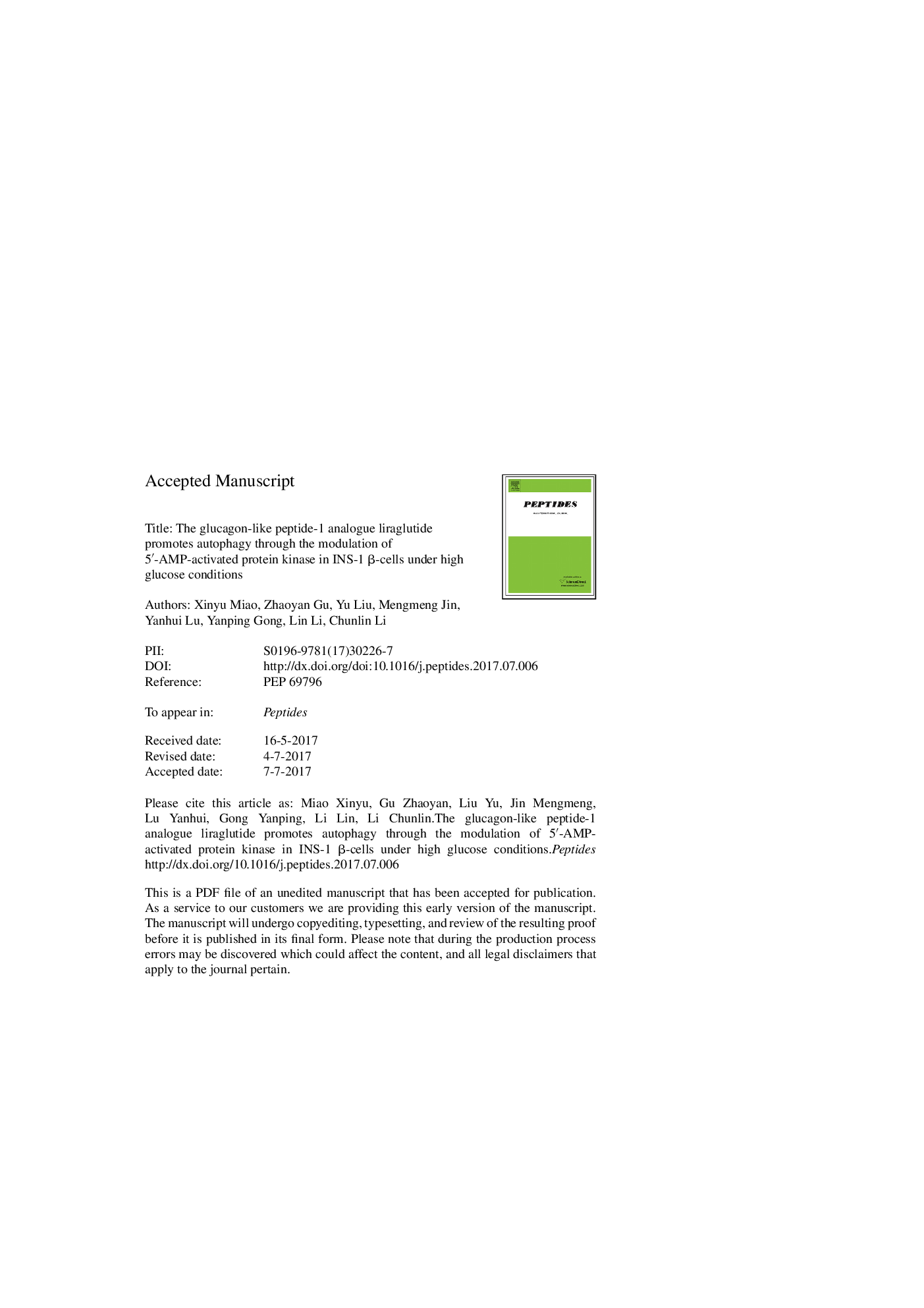| Article ID | Journal | Published Year | Pages | File Type |
|---|---|---|---|---|
| 8347480 | Peptides | 2018 | 26 Pages |
Abstract
Glucagon-like peptide-1 (GLP-1) is a potent therapeutic agent for the treatment of diabetes and has been proven to protect pancreatic β-cells from glucotoxicity; however, its mechanisms of action are not entirely understood. Autophagy is a dynamic lysosomal degradation process that can protect organisms against metabolic stress. Studies have shown that autophagy plays a protective role in the survival of pancreatic β-cells under high glucose conditions. In the present study, we explored the role of autophagy in GLP-1-induced protection of pancreatic β-cells exposed to high glucose. We demonstrated that the GLP-1 analogue liraglutide increased autophagy in rat INS-1 β-cells, and inhibition of autophagy abated the anti-apoptosis effect of liraglutide under high glucose conditions. Our results also showed that activation of 5â²-AMP-activated protein kinase (AMPK) reduced liraglutide-induced autophagy enhancement and inhibited liraglutide-induced protection of INS-1 β-cells from high glucose. These data suggest that GLP-1 may protect β-cells from glucotoxicity through promoting autophagy by the modulation of AMPK. Deeper insight into the molecular mechanisms linking autophagy and GLP-1-induced β-cell protection may reveal novel therapeutic targets to preserve β-cell mass.
Related Topics
Life Sciences
Biochemistry, Genetics and Molecular Biology
Biochemistry
Authors
Xinyu Miao, Zhaoyan Gu, Yu Liu, Mengmeng Jin, Yanhui Lu, Yanping Gong, Lin Li, Chunlin Li,
